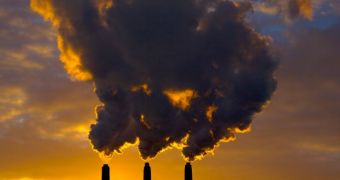Evidence indicates that children exposed to various air pollutants while still in the womb are more likely to be diagnosed with asthma during their early years, especially if the exposure occurred during the second trimester of pregnancy.
Speaking at this year's American Thoracic Society International Conference in San Diego, US, specialists explained that, as shown by previous studies, a child's lungs grow and develop in stages.
This means that, depending on when exactly a child is exposed to air contaminants before birth, their chances to develop one postnatal disease or another after delivery may greatly vary, the researchers further detailed.
Information collected while monitoring as many as 430 pregnancies and the overall health condition of the children and their mothers for up to 7 years after delivery indicates that daily exposure to air pollution is at its most dangerous during the second trimester.
Specifically, scientists maintain that children exposed to high levels of airborne fine particles from traffic, power plants, and industrial processes are more likely to develop asthma if the exposure occurs during said period.
Besides, it appears that mothers who happen to be obese during pregnancy have higher chances to have the health of their unborn babies affected by the fine particles that they themselves are exposed to simply by living in polluted environments, Green Car Congress informs.
In light of these findings, specialists recommend that efforts be made to limit exposure to air contaminants during the second trimester of pregnancy. They go on to argue that the outcomes of this investigation might help limit the effect of air pollution on mothers and their children.
“Pinpointing the gestational period during which air pollution has the greatest effects on the developing lung may add to our understanding of the mechanisms underlying this relationship,” says Dr. Rosalind Wright with the Department of Pediatrics at Icahn School of Medicine at Mount Sinai.
These fine particles that researchers are now saying pregnant women should try and stay clear of have been documented to work their way deep into a person's lungs when breathed in. By the looks of it, they can affect not just the individual who has been directly exposed to them, but also unborn children.
The World Health Organization already sees these fine particles as a threat to public health and considers them to be one of the leading causes of cancer. “Particulate matter, a major component of outdoor air pollution, was evaluated separately and was also classified as carcinogenic to humans,” the Organization said in a statement issued late last year.

 14 DAY TRIAL //
14 DAY TRIAL //